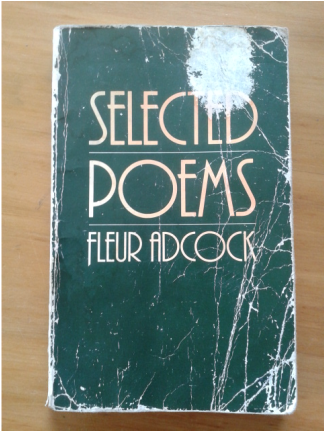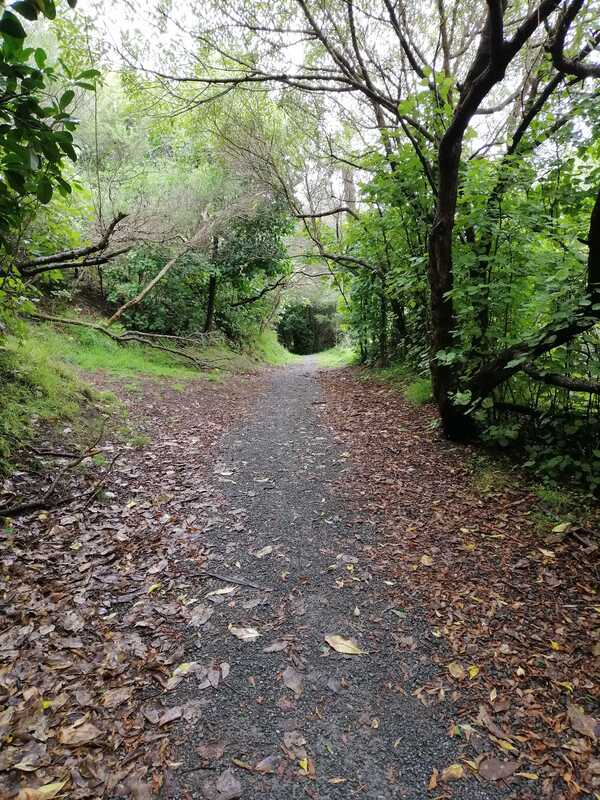|
Selected Poems, Fleur Adcock. Oxford University Press, 1983. Being a girl is dangerous. I don't just mean we are vulnerable to danger, but that we are, ourselves, dangerous, capable of causing great damage to ourselves and others. We, especially in those years we are changing into women, live in danger, where danger is the vibrating state we occupy. I started thinking tonight about Fleur Adcock's Selected Poems which I first read at 15. I remembered the dark green cover and how the spine looked on my parents' bookshelf. The slim sitting room one with the cut out hearts and tidy shelves of Penguins. Have I made up the moment of discovery? Of pulling the book from the shelf, of curling in the large brown chair with the ribbed pattern that would leave its tribal marks on me? The book must have come alive to me then, something that breathed and beat so that next time I came to the shelf I would recognise it. It would hum when I entered the room. It was my mother's book but became mine in the way any book is claimed as intimate property by obsessed readers. I wonder if it in turn claimed me, lodging its shards in my ears and brain and heart, because it was the first book of poetry I really read. A book I read for sheer pleasure but also I read and reread wanting to understand how Fleur Adcock had done it. I don't know if that is peculiarly a budding poet's reading, or if that is the nature of all close reading of poetry. That the thrill of a good poem is watching it run but also holding it in your lap, seeing the bones and muscles move beneath the pelt, smelling its oily springed wool. Understanding how it all fits together. Do teenagers, or at least the kind I was, gravitate towards poetry because the best of it is transformative in the same way adolescence is? Good poetry allowing us not just to see the capacity of the poet, but our own capacities. A transformation from passive childlike recipients of the word and the world, to readers active, engaged and creative in our own right. I think about how it's not just writers who are dangerous, with their strange ability to conjure mountains and moods, but readers too. There is a moment, when we get poems, if we get them, where we are not having something done to us by the poem, but we are doing something to the poem. A good poem, that we have read and understood, can give us a sense of mastery, perhaps what a musician feels when she plays fluently, for the first time, a difficult piece of music. It is a long time since I have opened Adcock's book and when I do it is with great affection as phrases I have loved for 30 years float up off the page out to me, triggering the same pings of pure pleasure as they did on my first encounter with them. ichnueman flies have got in It is 5 a.m. All the worse things come stalking in and stand icily about the bed looking worse and worse and worse ...and tiptoes in sandals that softly waffle-print the dusty floor 'Oblivian, that's all, I never dream' he said – proud of it, another immunity 'Will I die?', you ask. And so I enter on That dutiful exposition of that which you Would rather not know. Phrases which are part of my own history, which have been absorbed into my sense of the musicality of language, and which have shaped how I have read poetry ever since. And now, on this return, an added richness because I see the connection between Adcock and others. Her poems about the death of old lovers feel close to Lauris Edmond's. There is something of Adcock's parental ambiguity in Helen Lehndorf's gothic works of domesticity. I've just read Adcock's sister Marilyn Duckworth's 1970 book Over the Fence is out, and I see shared insight into the complexities of male violence against women. As Helen Heath explores in her poetry the intersections between human and synthetic worlds, I know she should read 'Gas', Adcock's speculative sequence on involuntary cloning. She sees with my imperfect vision, she wears my finger-prints; she is made from me. If she should break the bones I gave her, if disease should invade her replicas of my limbs and organs, which of us is betrayed? On re-examining the book I encounter again Adcock's formidable combination of cool formality and passion. Intense feelings bounded by guarded line and graceful rhythms. Feelings constrained, almost to the point of repression. The words seem to rebel against their dignified imprisonment, amplifying their potency. With Adcock I am always coming and going. Sailing so close to the poems' narrator our skins touch, feeling so close it as is if I understand the warm workings of another's body. This claustrophobia is not always, or even often, pleasant. If I were to touch you I should feel Against my fingers fat, moist worm-skin. I sail from here to a glittering windy world of wry distance, observation, salty intelligence. From Adcock I learned it was possible to write intimately without gushing, to write seriously without being doughy. The arts of deft restraint. This darkness has a quality That poses us in shapes and textures, One plane behind another, Flatness in depth. Your face; a fur of hair, a striped Curtain behind, and to one side cushions; Nothing recedes, all lies extended. I sink upon your image. What surprised me, when I found the battered copy of the never returned book on my shelf in a different room, in a different house, was how dangerous this book is. It's why I started thinking about danger. I wanted to find a belt and wrap it around the book like you must do with Harry Potter's Monster Book of Monsters to avoid being bitten. Selected Poems has tigers and rapists, maggots and prowlers, kitten killing mothers and exile, skinned dogs and nightmarish realisations. It was obscure, but glancing towards the end she guessed that killer, and lover and doctor were the same; proving that things are ultimately what they seem. Every hopeful poem about mothering and childhood in this book contains within it a moment of dying. Every relationship poem contains the demise of the relationship. It's a frightening book. Slightly hellish in its vision, full of serious and very adult truths. It's brutal and beautiful and honest. No wonder I loved it then, love it still. Look, children, the wood is full of tigers, warns Adcock. They've eaten all the squirrels. They want you, And it's no excuse to say you're only children. No one is on your side. What will you do?
0 Comments
Leave a Reply. |
Categories
All
Archives
March 2023
(C) Copyright 2012, Mrs Loolupants, All Rights Reserved.
|



 RSS Feed
RSS Feed
